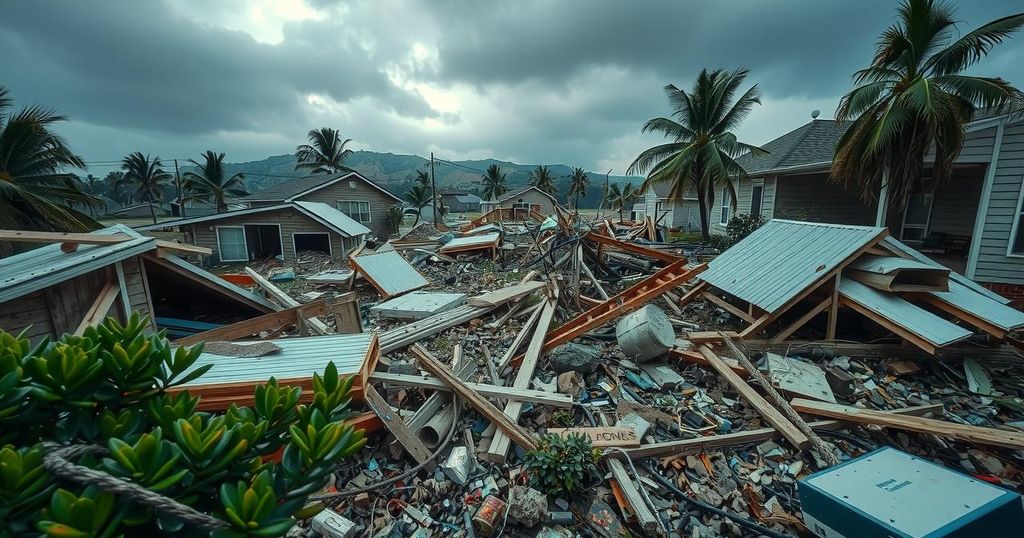2024 Atlantic Hurricane Season Ends with Record Storms and Damage

The 2024 Atlantic hurricane season concluded with 11 hurricanes, surpassing the average, and resulted in significant destruction across the U.S. and Caribbean. Notable storms included Hurricane Beryl, which formed as a Category 4 in June; Hurricane Helene, the deadliest storm since 2005; and Hurricane Milton, which recorded immense wind speeds. Rising ocean temperatures linked to climate change are influencing the intensity and behavior of these storms.
The 2024 Atlantic hurricane season concluded with a record number of storms and significant devastation across the southeastern United States and the Caribbean. This season featured 11 hurricanes, surpassing the average of seven, and left extensive damage on the U.S. Gulf Coast and neighboring regions. Meteorologists attributed the increased activity to rising ocean temperatures, which contributed to the formation of deadly storms that impacted various land masses including the U.S., Bermuda, Cuba, and beyond.
Among the notable hurricanes this year was Hurricane Beryl, which became the first Category 4 hurricane to form in June, impacting Grenada and later striking Jamaica, where it resulted in two fatalities and widespread destruction of infrastructure. Following Beryl, Hurricane Helene emerged as the deadliest storm of the year, causing over 200 deaths and an estimated $48.8 billion in damages, significantly affecting North Carolina and other southeastern states.
October witnessed the emergence of Hurricane Milton, which reached unprecedented wind speeds of 180 mph, marking one of the strongest hurricanes ever recorded in the Gulf of Mexico. Meanwhile, heavy rainfall was observed in regions such as Asheville and Tampa, reflecting the intense weather patterns associated with the storms. In November, Hurricane Rafael tied for the strongest November hurricane on record, further compounding the challenges faced by recovering regions.
It is crucial to understand the relationship between hurricane intensity and climate change, as rising carbon dioxide and methane levels are contributing to unprecedented ocean warming. According to hurricane researcher Brian McNoldy, such conditions lead to abnormal storm behavior, indicating that storms like Beryl and Milton are likely exacerbated by the changing climate. While specific weather events cannot solely be attributed to climate change, its influence on the frequency and strength of storms remains evident.
The Atlantic hurricane season, which runs annually from June 1 to November 30, has increasingly been characterized by more intense storms, attributed to the effects of climate change. Warmer ocean temperatures serve as a catalyst for hurricane formation and intensification, challenging the historical norms governing hurricane behavior in terms of timing and strength. The 2024 season has exemplified these shifts, producing an unusual number of hurricanes at varying times, leading to catastrophic impacts on populated areas.
The 2024 Atlantic hurricane season has been unprecedented in its severity, featuring more hurricanes than the historical average and resulting in thousands of fatalities and extensive property damage. This serves as a critical reminder of the ongoing influence of climate change on weather patterns. As ocean temperatures continue to rise, it is imperative to prepare for future hurricane seasons that may present similar or greater challenges.
Original Source: www.newsday.com






